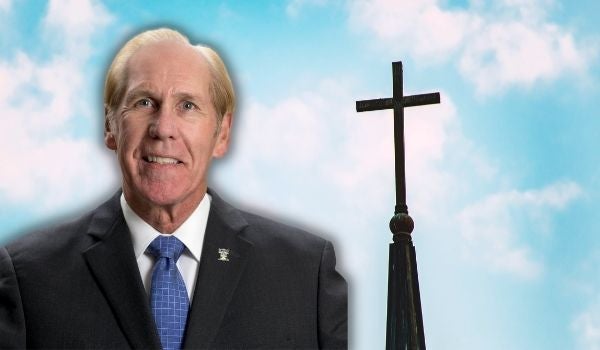No regrets?
Published 3:57 pm Sunday, April 3, 2022
|
Getting your Trinity Audio player ready...
|
By MICHAEL J. BROOKS | GUEST COLUMNIST
A pastor told of a collection of shirts he acquired from a church member. They were all short-sleeved for summer wear, and most fairly new. He explained the donor was a new Christian and with a new perspective saw the awful tattoos emblazoned on his arms.
“Now that I’m a Christian I will wear long-sleeved shirts to cover these tattoos,” he told his pastor. “I’d not really cared about them before, but now I don’t want to offend the Lord or anyone else with them.”
I’ve seen tattoos over the years that were lewd, but many today are more subdued portraying butterflies, bunny rabbits and rainbows. One-third of Americans under 30 have at least one tattoo. The most often used tattooed phrase is “no regrets,” but this is untrue since three of four who get tattoos eventually regret doing so! Accordingly, the tattoo removal business is booming in our country. Many with second thoughts do as this man did and cover them with clothing.
According to Daniel Pink, “no regrets” is a lie anyway.
Pink fostered the American Regret Project through which he surveyed 15,000 people in over 100 countries. He asked, “How often do you look back on your life and wish you had done things differently?” Eighty-two percent said regret is at least an occasional part of their lives. Two percent reported feeling regret “all the time,” and only one percent said they never felt regret.
Most of us live with regret. We had the opportunity to earn a degree to advance our career but didn’t, or we spoke cruel words in haste, or we triggered brokenness in our family or we made a poor moral choice hurting ourselves and others.
In “The Power of Regret,” Pink argued regret is an ally for positive change and that it can motivate us to do better and to be better.
“We can convert our regret into fuel for progress,” he wrote.
Alfred Nobel awoke to read his obituary in a morning newspaper. The reporter confused the death of Nobel’s brother, Ludwig, and reported that “the merchant of death is dead.” Alfred Nobel was an inventor and a chemist. His best-known invention was dynamite, the most powerful explosive force in its day. His invention made him wealthy, but also earned him the aforementioned title since dynamite became a weapon of warfare.
Eight years later Alfred Nobel died, but he left his fortune to fund a series of cash awards for those who made society better. Today we remember him not as a merchant of death but as the founder of the Nobel Peace Prize.
Nobel rewrote his obituary. Regret fueled positive change in his life, and it can in ours as well.
Reflections is a weekly devotional feature written by Michael J. Brooks, pastor of the Siluria Baptist Church, Alabaster, Alabama. The church’s website is Siluriabaptist.com.










